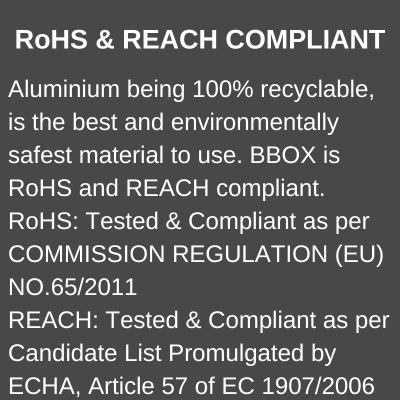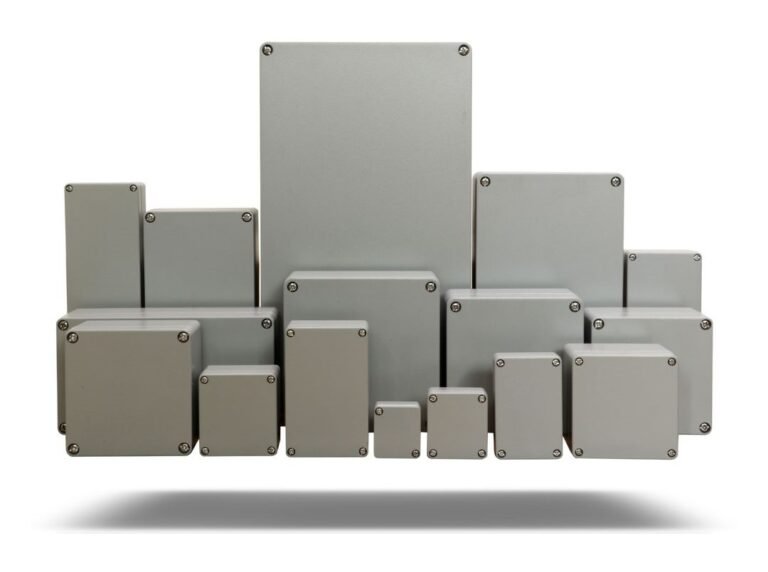Aluminium Die Cast Enclosures Junction BoxesHeavy DutyIP66 IP67IP68IP69K
Features & Specifications
Scroll Over Below Tabs To See Details
Click To See Details
MATERIAL
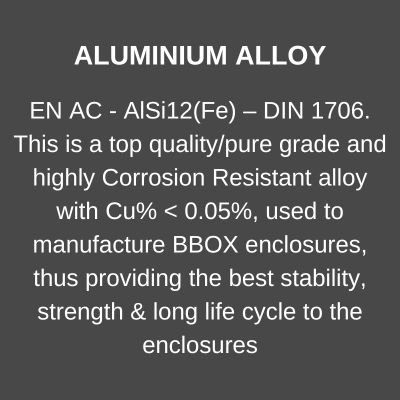
INGRESS PROTECTION
IP66, IP67, IP68 & IP69K - Even After Impact
The most complete ingress protection for your valuable products. IP66, IP67 & IP68 are Standard. IP69K is available on special request. Tested & Certified in accordance with IS/EN 60529:2001-DIN EN6059 IP66 & IP68 compliant even after an impact of ≤ 7 Joules.
GASKET
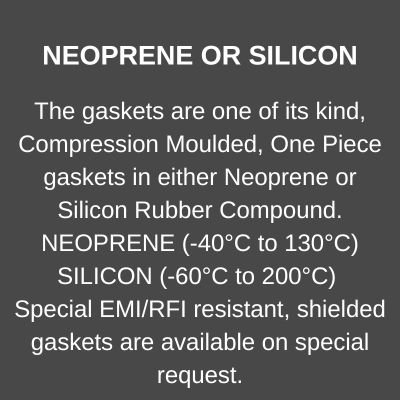
SURFACE FINISH & COATINGS
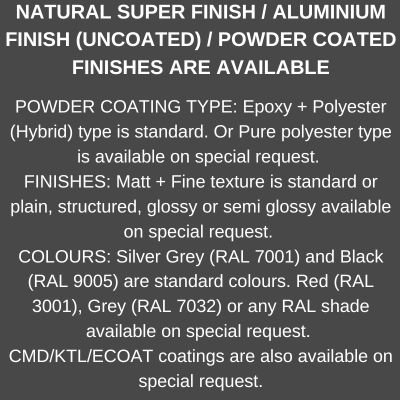
IMPACT & SHOCK RESISTANCE
UPTO 7 JOULES
Tested and Certified in accordance with / as per IS/IEC 60079-0:2007 EN60079 Without impairment of Ingress Protection IP66, IP67 or IP68 even after impact or shock upto 7 Joules.
CORROSION RESISTANCE
SALT SPRAY/MIST > 1000 HOURS (STANDARD GUARANTEE) TESTED SUCCESSFULLY FOR SALT SPRAY > 3000 HOURS
Tested and Certified in accordance with/as per ASTM B117 equivalent to Is 9000 Part XI. Due to excellent corrosion resistant Aluminium Alloy and the specially developed Powder Coating technology, BBOX is probably the Most Corrosion resistant aluminium enclosure that you will ever find anywhere.
SCREWS & FASTNERS
STAINLESS STEEL SS304 / A2
Captive Lid Mounting Screws: Stainless Steel with Pan Comi / Cheese / Torx head. Earth Screws: Copper Coated Steel Screws with Integral inbuilt spring washer. The Screws do not fall out of the Lid, because of the specially designed "Screw Retainer" even when the Lid is separated from base/box.
WALL & EQUIPMENT MOUNTING
INVISIBLE FITTING
Easy Wall or Equipment Invisible Mounting through Inner mounting holes provided OR External Mounting via Stainless Steel External Mounting Kit which is available on special request.
ENVIRONMENTALLY SAFE & COMPLIANT
